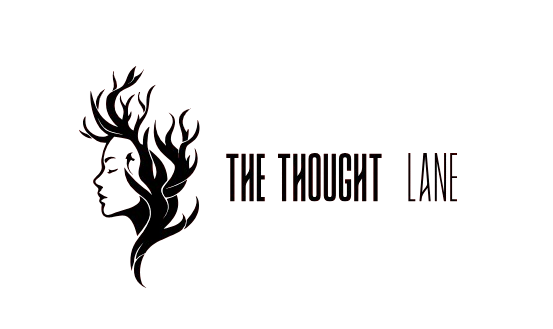John McAfee was a name that once echoed through every computer-savvy household in the early 2000s. Best known as the creator of the first commercial antivirus software, his later years spiraled into a whirlwind of controversy, global fugitive status, cryptocurrency adventures, bizarre behavior, and ultimately—his mysterious death in 2021.
From Silicon Valley icon to wanted criminal, John McAfee’s life is one of the most unbelievable tech stories ever told. His name became synonymous with not just cybersecurity—but rebellion, danger, and chaos.
Early Life of John McAfee: Brilliance and Trauma
John David McAfee was born on September 18, 1945, in Cinderford, Gloucestershire, England, to an American father and a British mother. His family later moved to Virginia in the United States, where John was raised.
McAfee’s early life was troubled. His father, an abusive alcoholic, died by suicide when John was only 15. This traumatic event left a deep psychological scar, shaping his later fascination with danger, control, and survival.
Despite his turbulent upbringing, John McAfee showed exceptional intellectual promise. He earned a bachelor’s degree in mathematics from Roanoke College in 1967. In the years that followed, he worked for several prestigious companies including NASA, Univac, and Lockheed.
John McAfee and the Birth of Antivirus Software
In the late 1980s, the world was beginning to wake up to the risks posed by computer viruses. After encountering the Brain virus, one of the earliest known computer viruses, John McAfee had a revelation. He saw the future of cybersecurity and decided to act.
In 1987, he founded McAfee Associates, pioneering the antivirus industry. The company’s software was one of the first to be distributed as shareware—a revolutionary business model at the time. Users could try it for free, and pay if they liked it.
By the early 1990s, McAfee Antivirus became a household name. The company grew rapidly, and McAfee’s wealth soared. In 1994, he resigned from the company and sold his remaining shares for approximately $100 million. Ironically, McAfee would later go on to criticize the software that bore his name, saying it was bloated and inefficient.
Life After McAfee Antivirus: The Descent Begins
After cashing out of his company, John McAfee pursued a series of eclectic and often controversial ventures. These included:
- QuorumEx: A biotech startup focused on antibiotic alternatives
- Aerotrek: A venture into lightweight aviation
- Tribal Trust in Belize: A compound he built, filled with bodyguards, dogs, and armed security
However, John McAfee’s life post-antivirus was far from stable. His wealth dwindled during the 2008 financial crisis. But instead of retreating, McAfee reinvented himself again—this time as an eccentric tech libertarian, and eventually a fugitive.

John McAfee’s Controversial Time in Belize
In 2008, John McAfee moved to Belize, seeking a quiet, tropical lifestyle. Instead, his life descended into paranoia, legal disputes, and violence.
In 2012, his neighbor, Gregory Faull, was found murdered under mysterious circumstances. Faull had previously complained about McAfee’s dogs. When local police came to question McAfee, he went on the run, claiming he was being framed.
This marked the beginning of John McAfee’s life as an international fugitive. He traveled through Central America, giving interviews, documenting his journey on social media, and constantly evading authorities.
McAfee in Exile: From Guatemala to the United States
After fleeing Belize, McAfee was arrested in Guatemala for illegal entry. He faked a heart attack to delay deportation back to Belize. Eventually, he was deported to the United States, where he briefly enjoyed peace—but remained under suspicion from authorities abroad.
Though no charges were brought against him in the Faull case, suspicions continued. John McAfee became a media sensation, both for his past and his increasingly bizarre behavior.
Presidential Campaigns: John McAfee’s Political Ambitions
In an unexpected twist, John McAfee ran for U.S. President in 2016 and again in 2020, representing the Libertarian Party. His platform focused on:
- Ending mass surveillance
- Promoting individual liberty
- Legalizing cannabis
- Embracing cryptocurrency as an alternative to centralized finance

Although he did not secure the nomination either time, McAfee’s campaigns were loud, eccentric, and ideologically radical. He ran his 2020 campaign from exile, claiming the IRS was persecuting him.
John McAfee and Cryptocurrency: A Digital Wild West
John McAfee was among the earliest and loudest evangelists of cryptocurrency. He believed in the decentralized future of finance, especially Bitcoin and privacy coins like Monero.
His crypto-related ventures included:
- Promoting ICOs (Initial Coin Offerings) on Twitter
- Launching his own currency: McAfee Coin
- Announcing (and later retracting) his famous “eat my own d*”** Bitcoin price prediction
However, his crypto activities attracted legal scrutiny. In 2020, he was indicted for tax evasion and securities fraud. U.S. authorities alleged that he earned millions through undisclosed crypto promotions and evaded taxes for years.
The Final Days: Arrest and Mysterious Death in Spain
In October 2020, John McAfee was arrested in Spain at the request of the U.S. Department of Justice. He was held in a Spanish prison while the U.S. pursued extradition.

On June 23, 2021, hours after a Spanish court approved his extradition to the U.S., John McAfee was found dead in his prison cell. The official ruling was suicide, but many—including his widow Janice—have questioned that narrative.
McAfee had previously tweeted, “If I die like Epstein, I didn’t kill myself.”
His death ignited a wave of conspiracy theories. Some believe he was silenced. Others say he faked his death. A few insist he left behind a dead man’s switch—some kind of secret that could be revealed posthumously.
Legacy of John McAfee: Genius, Madman, or Martyr?
John McAfee’s legacy is complex. On one hand, he was a pioneer in cybersecurity, helping define the digital safety net we rely on today. On the other, he became a symbol of chaos, rebellion, and paranoia.
His story raises deep questions about:
- The line between genius and madness
- The limits of privacy and personal freedom
- Whether true freedom is possible in a surveillance state
Some remember him as a visionary technologist, others as a dangerous egomaniac. But no one denies—John McAfee made the world pay attention.

John McAfee in Pop Culture and Media
McAfee’s larger-than-life personality made him a favorite subject for filmmakers and journalists. He was featured in:
- “Gringo: The Dangerous Life of John McAfee” (Showtime documentary)
- Numerous podcasts, including American Scandal
- Countless YouTube interviews and Twitter rants
There are rumors of upcoming dramatizations based on his life, with talks of Hollywood adaptations.
What We Can Learn from John McAfee’s Story
The story of John McAfee isn’t just about crime, paranoia, or technology. It’s about the clash between freedom and control in the digital age.
His life teaches us:
- Technology can be liberating—but also enslaving
- Wealth doesn’t guarantee peace or happiness
- The pursuit of ultimate freedom can lead to ultimate isolation
- We must balance digital security with personal responsibility
John McAfee’s Supporters and Critics
Supporters saw McAfee as:
- A freedom fighter against government control
- A crypto pioneer
- A truth-teller in a world full of lies
Critics argued he was:
- A self-absorbed narcissist
- A fraudster who endangered public trust in crypto
- A man who evaded accountability for serious allegations
The debate continues, even after his death.

The Women in John McAfee’s Life: Love, Power, and Control
John McAfee’s relationships were as eccentric and unpredictable as the man himself. He married multiple times and was romantically linked with numerous women throughout his life—many of them much younger than him.
One of the most public relationships was with Janice Dyson, a former sex worker whom McAfee married in 2013 after meeting her in Miami. Despite the unusual beginning, the pair remained together until his death. Janice later stated that she believed John McAfee was murdered, not suicidal.
McAfee also had a group of young women living with him during his time in Belize, which he referred to as his “harem.” Many of these women, some barely in their twenties, described a controlling environment. In interviews, they admitted to being paid to live there, some engaging in what they called “experiments.”
His relationships were often a reflection of his need for control and rebellion against societal norms—embracing a lifestyle that merged libertine excess with libertarian values.
John McAfee’s Beliefs: Libertarian to the Core
John McAfee identified as a hardcore libertarian and was deeply suspicious of governments, banks, and institutions. His public statements and lifestyle reflected his beliefs in:
- Self-sovereignty
- Minimal government
- Total digital privacy
- Unregulated financial systems (especially cryptocurrency)
He criticized income tax as “illegal” and refused to pay it for nearly a decade, claiming the U.S. government had no moral right to tax its citizens. McAfee saw taxation as theft and was fond of saying, “Freedom is an illusion in a world ruled by data.”
His philosophical writings and interviews often explored topics like the illusion of democracy, mass surveillance, and the corruption of centralized power.
John McAfee vs. the IRS: Tax Evasion Charges
The U.S. government pursued McAfee for tax evasion, alleging that between 2014 and 2018, he failed to file tax returns despite earning millions from:
- Speaking engagements
- Consulting
- Promoting cryptocurrencies
- Selling the rights to his life story
In March 2021, he was indicted on 10 counts of securities fraud and money laundering. Prosecutors claimed he used social media to manipulate cryptocurrency prices for personal gain. These charges ultimately led to his arrest in Spain, and the long-awaited extradition decision.
For McAfee, it was never about money—but about principle. He often said that he had enough money to last a hundred lifetimes but refused to acknowledge the state’s authority over his earnings.
The McAfee Dossier: A Secret Vault of Information?
Following his death, rumors swirled about a supposed “dead man’s switch” McAfee had created—a vault of secret government data that would be released if he were killed.
These rumors intensified after a mysterious Instagram post showing the letter “Q” appeared on his account hours after his death. Conspiracy theorists speculated it was linked to QAnon, suggesting McAfee had been part of a shadow war against elites.
Though there is no confirmed evidence that a dead man’s switch existed, the idea captured public imagination. Files allegedly related to “McAfee dead switch” began circulating on dark web forums, though most have been proven fake or inconclusive.
John McAfee and the Media Circus
McAfee knew how to play the media. He was part provocateur, part tech philosopher, and part showman. His interviews were unpredictable—ranging from humorous to unhinged.
Some memorable moments include:
- Snorting “bath salts” on live camera (though he later admitted it was a joke)
- Bragging about hacking into government databases
- Claiming he had files on global leaders that would cause revolutions if released
- Touting that he could hack any iPhone in minutes (a claim still unproven)
He masterfully crafted his image, embracing his infamy rather than hiding from it. In many ways, McAfee used media attention as a weapon—to gain followers, build his brand, and confuse his enemies.
Impact on Cybersecurity: A Legacy Beyond the Chaos
Despite the chaos of his later years, John McAfee’s contribution to cybersecurity is undeniable. He:
- Created one of the world’s first antivirus companies
- Helped raise awareness about digital threats
- Popularized the concept of user-level cybersecurity protection
His pioneering efforts paved the way for a multi-billion-dollar antivirus industry, which now includes global giants like Norton, Kaspersky, and Bitdefender.
Even though he became a critic of antivirus software in his final years, calling McAfee Antivirus “bloatware,” the fact remains—he changed the internet forever.
Posthumous Recognition and Speculation
Since his death, public interest in John McAfee has skyrocketed. His quotes have gone viral. His old interviews have resurfaced. His Twitter account—filled with wild thoughts, threats, and philosophies—has become a digital shrine.
Some fans have pushed for a documentary series or Netflix biopic, comparing his life to characters like Tony Stark or Walter White.
Petitions have been made to open a new investigation into his death, while conspiracy forums keep dissecting his every word.
In death, McAfee has become something he always sought in life: a legend.
What the World Can Learn from John McAfee
The world has a lot to learn from John McAfee—not just about technology, but about freedom, risk, and identity in the digital age.
- Freedom is Fragile
McAfee taught us that modern freedom is often an illusion. Between mass surveillance, tax controls, and centralized data, personal liberty is more vulnerable than we think. - Paranoia Can Be a Survival Strategy
While many dismissed McAfee as paranoid, he often predicted events that eventually came true. He spoke of cyberwarfare, government snooping, and crypto fraud before they were mainstream concerns. - Power Can Isolate
The more power McAfee gained—financial, technological, social—the more isolated he became. His life serves as a warning about the price of radical independence. - Rebels Are Rare
Love him or hate him, John McAfee was a true rebel in a conformist age. He lived by his own rules—and paid the price.

John McAfee Quotes That Still Resonate
Here are some of John McAfee’s most memorable quotes, still relevant in the post-pandemic, surveillance-heavy digital world:
- “Privacy is not something you can buy in a store.”
- “The government can’t protect you. All they can do is punish you afterwards.”
- “I have nothing. I regret nothing.”
- “There is only one true freedom—the freedom to say no.”
- “If you are not doing anything wrong, you have everything to fear.”
Each of these quotes reflects a man who feared no consequence, challenged every norm, and stood defiantly against systems of control.
Final Thoughts: The Enigma of John McAfee
John McAfee’s name will never fade from tech history. He was the cybersecurity pioneer who hated security, the libertarian who lived in mansions, the millionaire who said money meant nothing.
His struggles, controversies, and defiance weren’t just signs of madness—they were symbols of a man trying to carve out a life unchained from societal constraints.
Whether he died by his own hand or was silenced remains a mystery.
But one thing is certain:
John McAfee’s story is far from over.
Conclusion: The Legend of John McAfee Lives On
Though John McAfee is gone, his name continues to stir debate, curiosity, and conspiracy. His software protected millions of computers. His persona challenged global norms. His death raised more questions than answers.
John McAfee’s life was not neat, nor was it clean. But it was unforgettable—a wild mix of tech revolution, crime thriller, philosophical rebellion, and modern myth.
Whether you see him as hero or villain, one thing is certain:
John McAfee changed the digital world forever. https://en.wikipedia.org/wiki/2025_India%E2%80%93Pakistan_conflict



